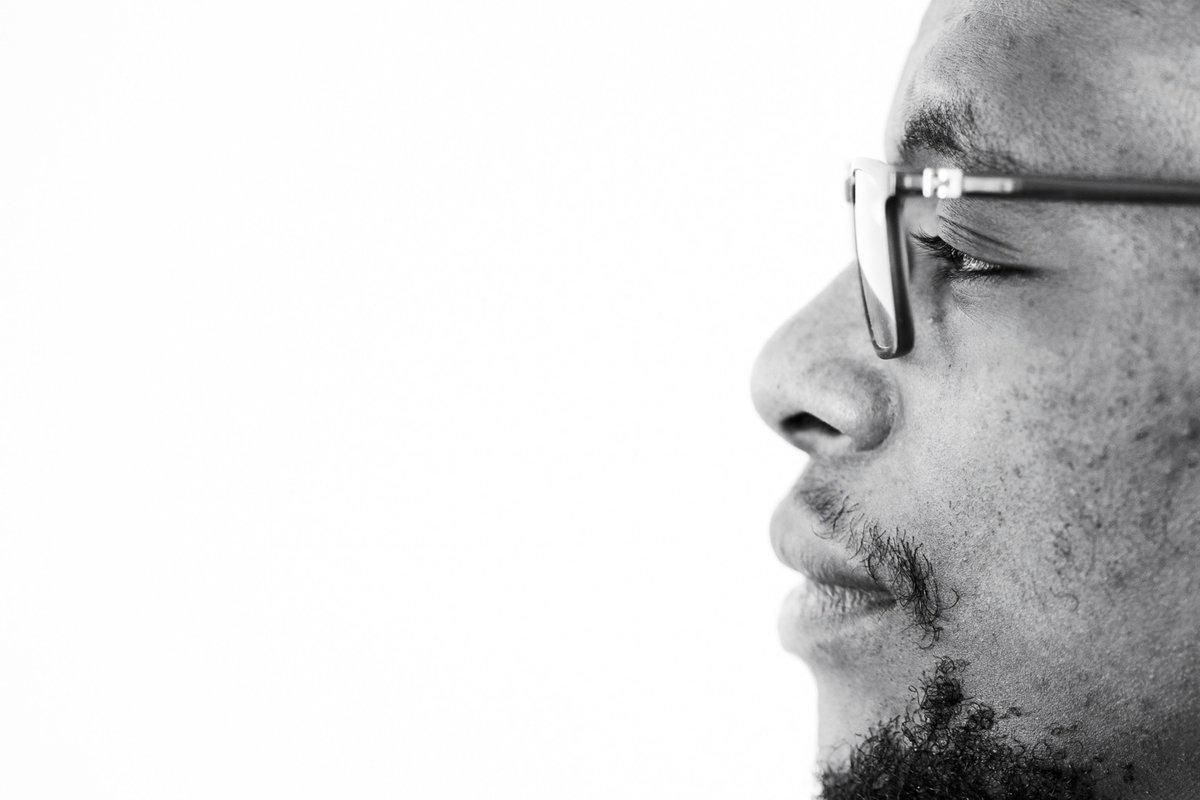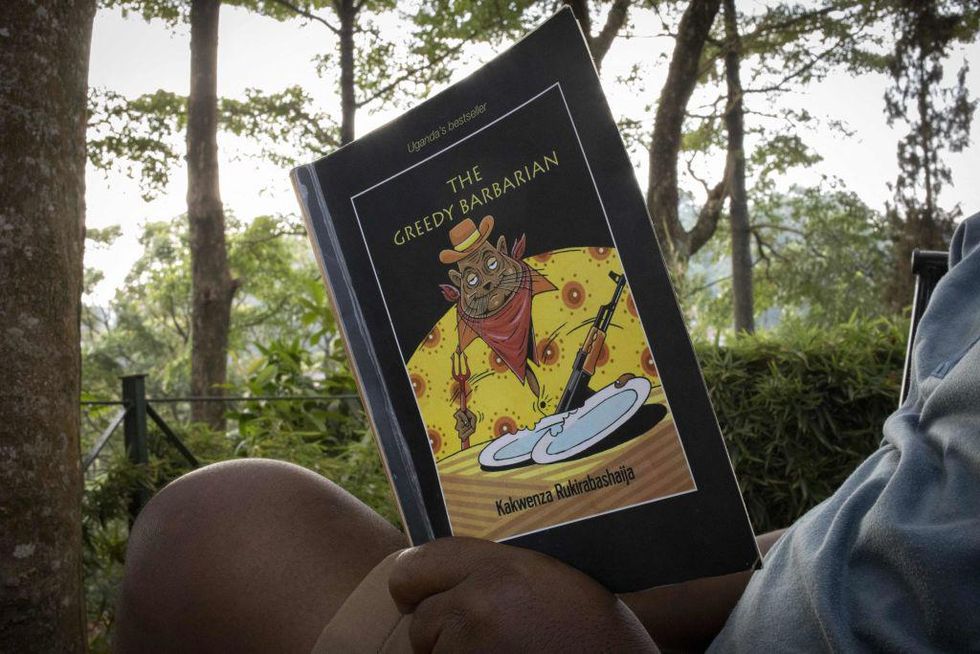Interview: Kakwenza Rukirabashaija On Being The Hell That The Ugandan Government Created For Themselves
We spoke with the Ugandan author, activist, and lawyer about his tumultuous relationship with a governing body that has no interest in maintaining law and order.

Ugandan activist Kakwenza Rukirabashaija
In his 33 years on Earth, Ugandan novelist, lawyer, and activist Kakwenza Rukirabashaija has not known a safe and fair homeland. Born two years after current Ugandan President Yoweri Museveni began his reign of terror in 1986, Rukirabashaija has spent most of his professional career trying to get people to take a real look at the dictator and his actions. The author’s first stab at an expose came in 2020, with the release of The Greedy Barbarian, a fictional recount of the highly-corrupt ruling National Resistance Party and the impossibly illegal things they got away with. The party then, under the instructions of Museveni, ordered the arrest of Rukirabashaija – and the toxic, biased tango began.
Rukirabashaija then narrated his ordeal and published his second work, Banana Republic: Where Writing is Treasonous. The book landed the activist in hot water, again. One day after publishing his second book of 2020, Rukirabashaija was again detained. His most recent and traumatic interaction with the Ugandan legal system was in December last year when he was detained and, according to Rukirabashaija, tortured for two weeks after posting a series of demeaning tweets against the President's son. He was then ordered to surrender his passport to the courts. After seeking medical treatment and being referred to Germany and the US, Rukirabashaija requested his passport back but was denied. The writer then fled to Europe, where he is now, in a last-ditch effort to save his life.
We spoke with the valiant writer where he sits safely in European territories about the power and importance of writing, wreaking havoc on government officials who have overstayed their welcome, and why international leaders should readjust their alliances.
Responses have been edited for length and clarity.
You’ve written about the ways in which the Ugandan government has abused and mistreated their citizens – and you. How did your journey to becoming an author begin? Why did you decide to write?
Our responsibility as writers is to mirror whatever mess is going on in our society. You cannot be a writer and exist in a society that is full of shit, and also be comfortable in that shit. You have to do something about it - using literature. There's a saying that goes, “it is through fiction that writers tell the truth”. So, my first book was fiction – The Greedy Barbarian. It reflected whatever mess Uganda was in, or has been in for decades.
When I published it, Mr. (Yoweri) Museveni interested himself in my works. He came for me. Not in a legal way, but in a draconian manner. I was tortured and dehumanized. I spent a month in detention and when I came out, after healing, I sat down and wrote another book. This time around, it was not fiction – I narrated everything that I went through in a torture chamber.
I started writing it in May 2020 [after my release], and it was completed in June of the same year. I published it on 17th September 2020, and on 18th September I was arrested again. For writing about whatever I went through. I spent about three days in illegal detention and was released after being charged with “inciting violence and promoting sectarianism.” My most recent arrest happened on December 28th, last year. I made unflattering tweets about the dictatorship, the president, and his stupid son. They came for me again, but, this time around, it was worse. As a result, I’m currently in exile.
Do you feel that you have the support of your fellow Ugandans?
Not all Ugandans. Muhoozi (Kainerugaba), the president's son, is a Ugandan. The regime supporters, the ones who are gaslighting, they're also Ugandans. However, there's a section of Ugandans that really, really understand, and I've received enormous support. Not only in Uganda but international support, too. The organization PEN International has really supported me a lot, and very many other organizations and media houses. They have advocated for my release and put out my cause for the whole world to see. So, I've received a lot of support.
And now with you being in exile, what do you hope to do next?
I'll continue writing. I also have plans to obtain my Ph.D. in December or January 2023. I am unstoppable. The president and his son created hell. Truly. And I crept out of that hell, and am becoming hell for them. So, they will have to feel the heat.
How do we as Africans get to this point so often with our leaders? How do these people stay in power for so long?
We allow them to overstay. If we spoke to them, they wouldn't grow into superpowers.
And they get into this mentality where they forget that it's a job, and not a birthright.
Yes – they think it’s a hereditament. A Royal hereditament. And the mere fact that we allow them to continue oppressing us, and that it all happens on our watch, right in front of our eyes. They continue to silence intelligent people so that their stupidity continues to flourish.
How would you rate the way in which the Ugandan media handles the presidency?
Ugandan media is censored, of course. They also fear [the consequences], and I cannot blame them. They also fear losing their license. It is just a matter of a phone call to the Ugandan Communication Commission, to not renew licenses for a certain media house. It happens. So yeah, I cannot blame them. They are also oppressed. They are encapsulated in the operation.
I've seen online that there's been a warrant put out for your arrest from Uganda, but you're in exile. You explained on Twitter that because you are abroad, there is no way that could be fulfilled. Could you help us understand that better?
That arrest warrant is sheer foolishness. A functioning judicial system would not allow such things to happen.
First of all, I'm in exile because of a failed legal system. I was in illegal detention and tortured for two weeks. I was actually smuggled to court and the magistrate who was supposed to observe my rights instead presided over illegalities. My lawyers appeared before the court and ordered that I be produced in court, dead or alive because our constitution says that a suspect is not supposed to be in detention for more than 48 hours (Chapter four; Article 23; 4. B). I was in detention for 14 days.
Our laws are very clear. Our domestic laws — especially Human Rights Enforcement Act, Anti-torture Act, International charters, and human rights charters — are all very clear. When a suspect raises an issue of human rights abuse, the magistrate or presiding judge is supposed to stall the proceedings, and first handle the human rights issues, as rated by the suspect.
So I was smuggled into court, oozing pus from different parts of my body. Every joint was swollen, and the magistrate failed to acknowledge it or ensure that I had legal representation. They smuggled me into court without informing anyone. Instead of staying the proceedings as the law requires, instead of observing my rights, he instead remanded me to prison where I spent 14 days.
Can you imagine a judicial officer, who is supposed to dispense justice with utmost impartiality, doing such a thing? He was supposed to protect me, protect my rights, but he didn't do that. So I went to prison and when I was given bail, it was on the condition that I don't speak about my torture. It was on condition that I submit my passport in court – and I did. I didn't talk about my torture, at first.
I went to the best hospital in Uganda to get tests and they referred me to Germany for extensive medical care. When I tabled my medical report to court to ask for my passport, the foolish magistrate refused to give me back my passport. And that’s when I lost patience and started blowing off steam. How could he do that? That’s why I fled the country. I could not continue being subjected to such illegalities all the time. Amazingly, I reached Germany without a passport.

Rukirabashaija's first novel 'The Greedy Barbarian' a satirical fictional depiction of a corrupt government regime.
Photo by KATUMBA BADRU SULTAN/AFP via Getty Images
How beautiful to know that through all of that, there are people who are committed to keeping you safe.
I'm surrounded by people who care about me. The Ugandan government, which is supposed to care about me, protect me, and ensure that my rights are observed, is the same government that is subjecting me to continuous oppression and political persecution. I was not born to keep quiet on such issues. You cannot torture me, cook me right, left, and center, and not expect anything. I'm supposed to speak out.
How has your family back in Uganda been affected?
They will be fine. My family will be fine. I'm alone in Europe now, but I’m looking for ways of relocating my family to safety.
Have they had any issues in Uganda?
I can't know. You can’t know when the devil is making plans.
Kakwenza, what do you wish to see more of in the media, with regards to Uganda and the injustices the country is colored with?
It hurts to see countries like the USA, UK, European, and Schengen support them. I want to understand why people in such countries pay taxes, and such taxes are diverted to support terrorism in Uganda. What is happening is terrorism. Crimes against humanity, but such governments keep on supporting Museveni. I'm not saying that supporting another government is bad, but such support must be based on common values. So, what are the common values between the USA government and the Ugandan government? The common values must be at least respect for human rights, democracy, and rule of law – all such things are absent in Uganda. I really wonder what they base their continued support for Mr. Museveni on. I don't know why they keep wasting their money to support a terrorist, a cannibal.
You might wonder why I'm calling them cannibals. They used the pliers to pick the flesh from my thighs. What did they do with the flesh they picked from the thighs if they did not eat them? That is why I call them cannibals. I apologize for my language, but my anger is justified.

